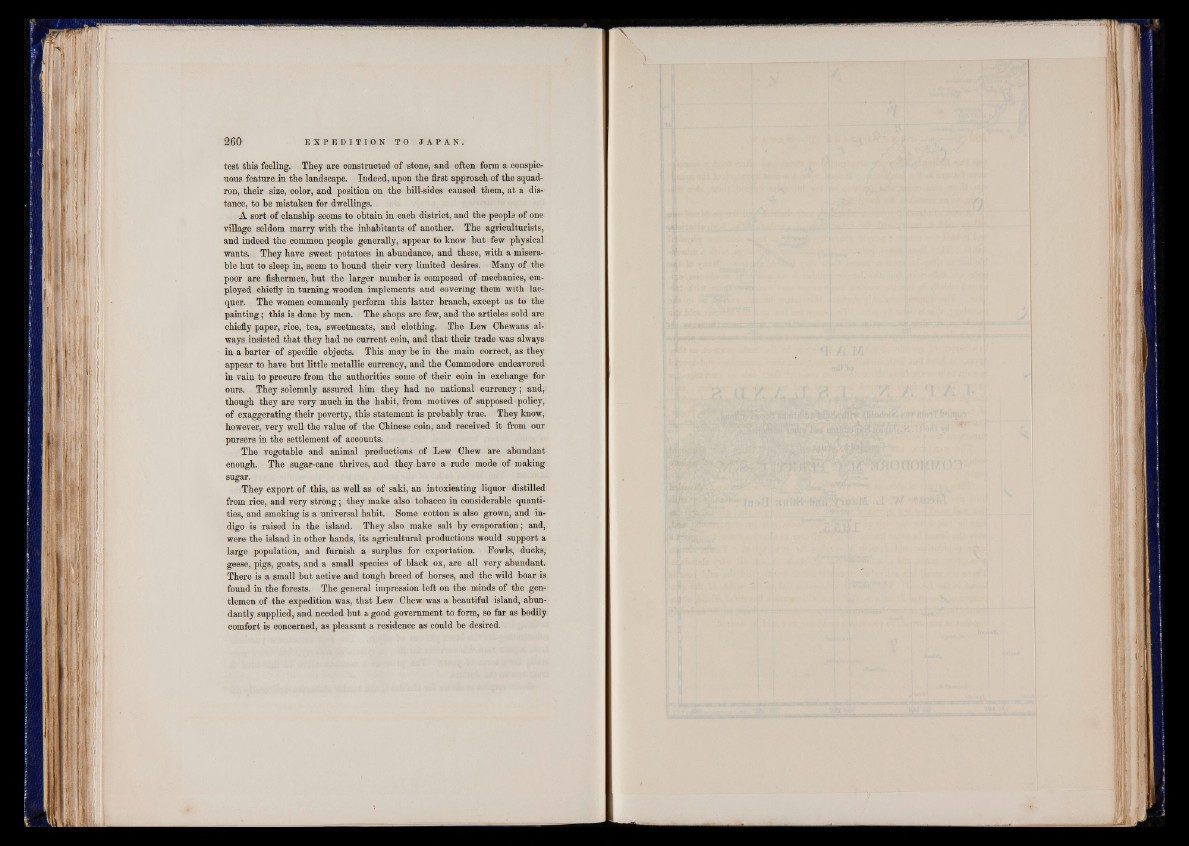
test this feeling. They are constructed of stone, and often form a conspicuous
feature j n the landscape. Indeed, upon the first approach of the squadron,
their size, color, and position on the hill-sides caused them, at a distance,
to he mistaken for dwellings.
A sort of clanship seems to obtain in each district, and the people of one
village seldom marry with the inhabitants of another. The agriculturists,
and indeed the common people generally, appear to know but few physical
wants. They have sweet potatoes in abundance, and these, with a miserable
hut to sleep in, seem to bound their very limited desires. Many of the
poor are fishermen, but the larger number is composed of mechanics, employed
chiefly in turning wooden implements and covering them with lacquer.
The women commonly perform this latter branch, except as to the
painting; this is done by men. The shops are few, and the articles sold are
chiefly paper, rice, tea, sweetmeats, and clothing. The Lew Chewans always
insisted that they had no current coin, and that their trade was always
in a barter of specific objects. This may be in the main correct, as they
appear to have but little metallic currency, and the Commodore endeavored
in vain to procure from the authorities some of their coin in exchange for
ours. They solemnly assured him they had no national currency ; and,
though they are very much in the habit, from motives of supposed policy,
of exaggerating their poverty, this statement is probably true. They know,
however, very well the value of the Chinese coin, and received it from our
pursers in the settlement of accounts.
The vegetable and animal productions of Lew Chew are abundant
enough. The sugar-cane thrives, and they have a rude mode of making
sugar.
They export of this, as well as of saki, an intoxicating liquor distilled
from rice, and very strong; they make also tobacco in considerable quantities,
and smoking is a universal habit. Some cotton is also grown, and indigo
is raised in the island. They also make salt by evaporation; and,
were the island in other hands, its agricultural productions would support a
large population, and furnish a surplus for exportation. Fowls, ducks,
geese, pigs, goats, and a small species of black ox, are all very abundant.
There is a small but active and tough breed of horses, and the wild boar is
found in the forests. The general impression left on the minds of the gentlemen
of the expedition was, that Lew Chew was a beautiful island, abundantly
supplied, and needed but a good government to form, so far as bodily
comfort is concerned, as pleasant a residence as could be desired.